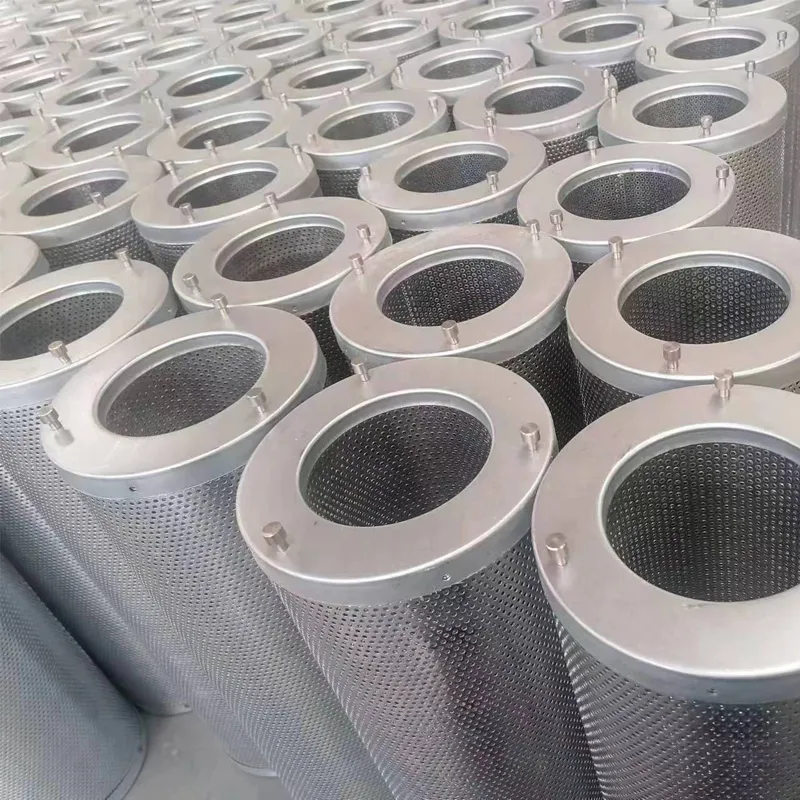 Tel:
+8615930870079
Tel:
+8615930870079
Dic . 01, 2024 17:16 Back to list
stainless steel filter element
Understanding Stainless Steel Filter Elements A Comprehensive Guide
Stainless steel filter elements are essential components used in various filtration systems across many industries, including oil and gas, pharmaceuticals, food and beverage, and water treatment. Their robust design and superior properties make them ideal for demanding applications where reliability and efficiency are paramount.
What are Stainless Steel Filter Elements?
Stainless steel filter elements are made from stainless steel materials, which are known for their excellent corrosion resistance, high strength, and durability. These elements can be found in different forms, such as discs, tubes, or cartridges, and are designed to remove contaminants and particulates from fluids or gases. The porous structure of the filter allows for effective separation without compromising the flow rate, making them ideal for both liquid and gas filtration.
Advantages of Stainless Steel Filter Elements
1. Corrosion Resistance One of the main advantages of stainless steel filter elements is their inherent resistance to rust and corrosion. This property is particularly important in applications involving aggressive chemicals or environments with fluctuating temperatures and humidity levels.
2. Durability Stainless steel is known for its toughness and durability compared to other materials like plastic or paper filters. These filter elements can withstand high pressures and challenging conditions, leading to a longer lifespan and reduced frequency of replacement.
3. High Filtration Efficiency Stainless steel filters are capable of achieving a high level of filtration efficiency. Their precise pore size can be engineered to target specific contaminants, ensuring that only the desired particles pass through the system. This precision is critical in applications such as pharmaceuticals, where product purity is paramount.
4. Cleanability and Reusability Unlike disposable filters, stainless steel elements can be backwashed, cleaned, and reused. This not only lowers operational costs over time but also aligns with sustainability practices by reducing waste.
5. Temperature Resistance Stainless steel can withstand high temperatures without losing integrity, making these filters suitable for processes requiring heat, such as in the petrochemical industry.
Applications of Stainless Steel Filter Elements
Stainless steel filter elements are versatile and are employed in various applications, including
stainless steel filter element

- Oil and Gas Used to filter out solids and contaminants, ensuring the purity of crude oil and natural gas during extraction and refining processes. - Pharmaceutical Industry Ensures that products are free from particulates and contaminants, critical for maintaining compliance with health regulations.
- Food and Beverage Used to filter liquids such as beer, wine, and juices, maintaining quality and taste while preventing bacterial contamination.
- Water Treatment Utilized in municipal and industrial water treatment facilities to ensure clean and safe water supply by removing impurities.
- Automotive and Aerospace Used in hydraulic systems and fuel systems to ensure the performance and safety of vehicles and aircraft.
Filtration Technologies
Stainless steel filter elements can be integrated into various filtration technologies, such as
- Membrane Filtration In processes where precise separation is required, stainless steel materials can be used as support structures for membrane filtration systems.
- Self-Cleaning Systems Many stainless steel filters can be designed as self-cleaning systems, utilizing backflushing methods to maintain efficiency and reduce manual labor.
- Multi-Media Filtration By combining stainless steel with other materials, multi-media filters can capture a wider range of pollutants, providing comprehensive filtration solutions.
Conclusion
In conclusion, stainless steel filter elements are critical components in modern filtration systems, offering a combination of durability, efficiency, and versatility. Their ability to withstand harsh environments and to be reused makes them not only a cost-effective solution but also a sustainable choice in various industries. As the demand for high-performance filtration solutions continues to grow, the role of stainless steel filter elements will undoubtedly remain significant in maintaining the quality and safety of products across the globe. Whether in chemical processing, food production, or clean water initiatives, stainless steel filters stand out as reliable and efficient solutions tailored to meet the challenges of contemporary filtration needs.
-
Types and Applications of Air Filtration CartridgesNewsJul.28,2025
-
The Role of Gas Turbine FiltersNewsJul.28,2025
-
Mastering Air Filter Cartridge UseNewsJul.28,2025
-
Advanced Turbine Filters for Modern Gas TurbinesNewsJul.28,2025
-
Cellulose Air Filter Cartridge Advantages in Dust FiltrationNewsJul.28,2025
-
Cellulose Filters for Air Particle ReductionNewsJul.28,2025

 Email:
Email:





